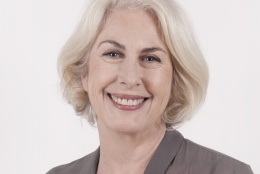Homepage
Welldoing Articles
Finding Professional, Quality Therapy Should be Made Safer says Daily Telegraph
Finding Professional, Quality Therapy Should be Made Safer says Daily Telegraph
Jan 18, 2024


Louise Chunn undefined
Jan 22, 2025 39
- The huge changes in how therapy is delivered is causing genuine concern to many, from therapist organisations to privacy campaigners
- Louise Chunn explains how Welldoing guards vulnerable clients from poor practice and therapists from the perils of 'Uberisation'
The latest media revelations about digital therapy and the effect of US giant BetterHelp's effect on the UK therapy business appeared this week. In The Daily Telegraph was a news story headlined "Why your online therapist might be doing you more harm than good" while Times columnist James Marriott wrote "AI Therapy will lead us down a lonely road".
Both articles stressed the fact that quality, professional therapy was beneficial to clients' mental health, but included many therapists and clients who felt that there was too much online that didn't fit that description. As a reputable therapy platform we at Welldoing are distressed to hear this, and want the public to know that there are safe, easy ways to access therapy, such as our service.
The Telegraph reported that referrals to mental health services in the UK rose by 22 per cent from 2019 to 2022. In the post-Covid period, more and more people are not being seen via the NHS, but going private. Another change is that half of all therapy sessions in the UK are remote, taking placing over Zoom, through an app or with a bot.
Telegraph journalist Tim Moore reported, "Anybody in the UK can call themselves a therapist - even a child psychotherapist - or any stripe of counsellor or life coach, and set up a private practice advising potentially vulnerable clients. Around 200,000 Britons now classify themselves as employed or self-employed 'therapy professionals', a rise of almost 50 per cent in the past decade."
For exactly this reason Welldoing is strict about the therapists we will accept, insisting checking the professional membership of anyone who wants to join us. Every week we turn away people who do not meet our exacting standards. We also make annual verification checks on all our members, to ensure that they are still registered with a professional body.
Moore spoke to Sue Dale of the BACP who said 'Worryingly, most people don't realise there's no regulation of therapy or counselling in the UK. "It's crucial that however you access therapy, you check that your therapist is registered with a professional body."
We feel that knowing that everyone on Welldoing has already met that standard makes us a trustworthy resource for therapists and counsellors, of all sorts of trainings. If there are problems, the professional associations are there to deal with client complaints.
Moore reported that many people are turning to "Uber for therapy" on huge US sites such as BetterHelp and Talkspace, even though there have been problems with security. "Last year, the US Federal Trade Commission fined BetterHelp $7.8million after it shared data with third parties including Meta previously Facebook and Snapchat.
Last year US non-profit internet foundation Mozilla published a worrying report claiming that many therapy apps "fail spectacularly" when it comes to privacy and security. According to an earlier story in The Telegraph "The organisation reviewed 32 of the top mental health and prayer apps, 26 of which it has slapped with a "Privacy Not Included" warning label, indicating strong concerns over how data was being managed. Lead researcher Jen Caltrider sounded a warning: "The vast majority of mental health and prayer apps are exceptionally creepy. They track, share, and capitalise on users' most intimate personal thoughts and feelings, like moods, mental state and biometric data."
According to the report there are now an estimated 20,000 mental-health apps including some that use 'AI companions', rather than using human counsellors or therapists to offer mental-health support. Woebot and Wysa have each been downloaded more than a million times.
But according to Dr Paul Marsden, a member of the British Psychological Society's cyberpsychology committee, AI apps 'should only be seen as a supplement to in-person therapy. The consensus is that apps don't replace human therapy'. As mental-health academic Dr Elizabeth Cotton, associate professor of responsible business at the University of Leicester, says this 'Uberization' fosters a climate that 'fundamentally erodes any chance of having an actual relationship with an actual therapist'.
There has long been robust research showing that up to 50 percent of therapy's efficacy is up to the therapeutic alliance. This connection between patient and therapist, is a joint sense of mission, collaboration, trust in the other, and hope.
"When Woebot surveyed 36,000 of its users, it found that most developed a trusting 'therapeutic alliance' with its chatbot within four days. On its website, Woebot says that while it is trained to detect concerning language during a conversation, it is not a crisis-intervention service, or a replacement for clinical care," reported the Telegraph, but then gave several hair-raising examples of poor advice and even a chatbot who encouraged 21 year old Jaswant Singh Chail to break into Windsor Castle in order to kill the queen, resulting in him being jailed for nine years.
"During the sentencing, Judge Nicholas Hilliard remarked that 'in his [Chail's] lonely, depressed, and suicidal state of mind, he would have been particularly vulnerable' to the chatbot's words."
In The Times millennial columnist and literary critic James Marriott wrote that he is "far from being a therapy sceptic". A few years ago he saw an analyst to help with feelings around failure, and benefitted from the experience. He worries though that his generation "raised on social media and accustomed to 'parasocial' relationships with YouTubers, podcasters and influencers that characterise life online, real connections can be replaced too easily by ersatz digital alternatives." Making a relationship with a therapy bot would in no way solve problems, or create relationships.
Here at Welldoing, we provide verified practitioners who you may see online or in-person. They come from a range of trainings, and are various ethnicities, genders, ages, and prices. We believe there is one for you, if and when that times comes.

Louise Chunn undefined
Read further
